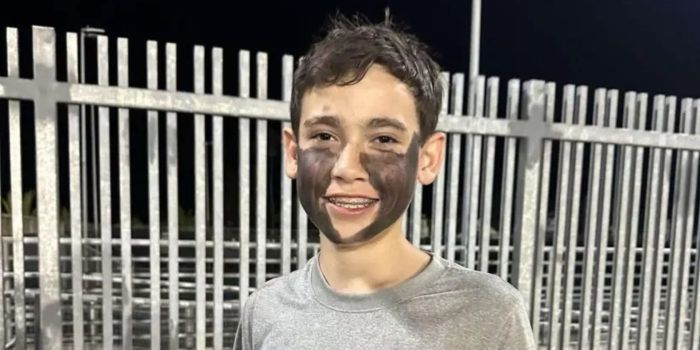(Molly Bruns, Headline USA) A Muirlands Middle School student who attended a football game while wearing eye black in October faced disciplinary action after the school accused him of wearing “blackface.”
Despite the fact that J.A.—identified by only his initials for privacy reasons—wore the exaggerated eye black, painted on by another student, for the entirety of the football game without incident, the school suspended him and banned him from attending future school-sponsored athletic events.
The school categorized the offense as an “offensive comment, intent to harm” in the “hate incidents” section of the disciplinary report.
Now his parents are pushing back with the help of the Foundation for Individual Rights and Expression, a nonpartisan free-speech watchdog, to get the incident expunged from his record and perhaps hold the school accountable for its overreach.
“There is no evidence J.A.’s face paint caused a disruption—let alone a material and substantial one—at the football game or at school afterward,” said a letter FIRE sent the school last week.
FIRE said that the suspension violated of J.A.’s First Amendment rights, which legally protect several modes of self-expression including dancing, painting and tattoos.
When administering judgement, the principal did not provide any complaints against the child nor explain how his eye black was a “hate incident.”
The letter went on to say that J.A. did not intend to mock or ridicule black people with the eye black, as minstrel shows previously used. He simply wanted to follow the trend put in place by thousands of athletes.
“The complete lack of disruption is unsurprising, as the sight of fans in face paint is familiar to and expected by anyone who has ever attended a football game or other sporting event,” it noted.
Athletes use eye black to reduce glare from the sun during games, as well as a sort of menacing war paint. Several athletes across a variety of sports use excessive amounts of eye black.
FIRE requested the school remove the infraction and “reaffirm [its] commitment to its binding First Amendment obligations.”

